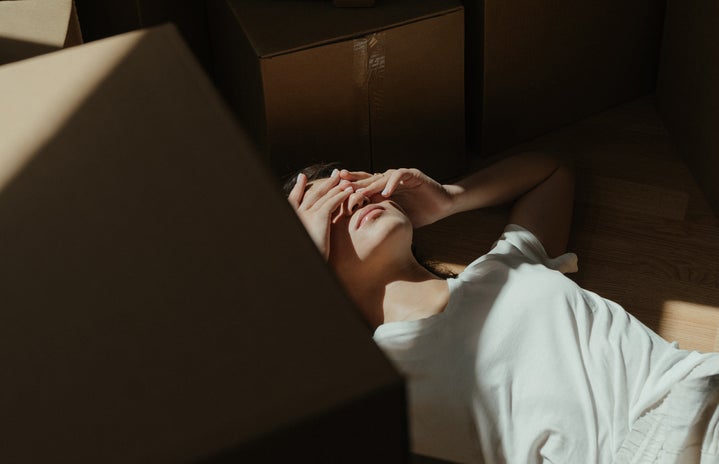September is Suicide Awareness Prevention month. There’s a reason that September is one of the hardest months for college students struggling with depression, anxiety, or other mental health issues. Starting school again, saying goodbye to family, and moving back in all at the same time is always difficult.
My first week back this year was ridiculously hard. My car broke down twice, my schedule changed last-minute, and my mental health took such a bad turn that I had to miss multiple classes. I struggled at the start of the semester, and I want to share a few things that have kept me going this past week.
Leave Your Room
Whether you live in an apartment, a house, or a dorm room it’s important to get out every day. You can go on a walk, make a shopping trip, or even study at a coffee shop for a few hours. Personally, I love working at BonAppeTea near Blocker and University Drive. Trying to be productive at home is difficult, and working in a public environment around other people helps me stay focused. Even when making plans with friends seems like too much, I can still go sit at BonAppeTea or Carport Coffee, and it prevents me from spending all day in my room.
Self Care
Self care is my go-to coping mechanism whenever I’m feeling extremely depressed. It’s fun, and I love to watch a favorite movie while I do my nails or an elaborate skincare routine. But self care doesn’t have to be related to beauty! Another form of self care I enjoy is taking care of my apartment. I like to watch WithCindy Youtube videos while I do laundry, wash dishes, and clean my room. Having a clean and happy space really helps improve my mental health.
Get Sunshine
Touch grass, people. Seriously! The sun is essential to vitamin D production. Vitamin D production helps to balance your mood. Even if you’re just walking to class or chilling at the Gardens on west campus, spending time in the sun does a lot to combat anxiety and depression. Sometimes when I have classes near Zachry or the Liberal Arts building, I walk to the East Quad if I’m feeling down. I like to sit on the lawn, read (or nap), and soak up the sunshine until I feel a little bit better. Also, the East Quad is fantastic for people-watching. : )
Go to the Gym
This one is a little more difficult, because sometimes the gym can be crowded and intimidating. When there are a ton of people in the gym at my apartment, I opt for yoga at home. Exercise is fantastic for releasing endorphins and balancing your mood, so I try to exercise a few times a week when I have time. This past week I’ve been trying to make time for exercise even when I have urgent schoolwork. Sometimes the best thing I can do is put aside my work (even if it’s urgent!) to spend just twenty minutes working out. Twenty minutes of walking on a treadmill, lifting, or yoga is enough for your brain to start producing endorphins and make you feel a little better.
Talk to Friends and Family
This last suggestion is the most important. Depression and anxiety can be a really isolating experience, and a lot of the time it feels like you’re the only person struggling with it. When I’m walking across campus, sometimes it feels like I’m the only person who’s facing mental health problems because everyone seems so cheerful and happy! But when you reach out to your support system, it prevents you from isolating yourself. Particularly, because September is Suicide Prevention Awareness Month, it’s really important to talk to our friends and family about mental health. Even if you’re feeling fine, you never know when someone else might be struggling. This week, I found out that someone I know is also struggling with depression and anxiety! If I hadn’t shared what I was going through with her, I never would have known. I’ve also made an effort to tell my friends what I’m going through and reach out to on-campus resources. (The staff over at CAPS are really fantastic, by the way.) It really helps to know that there are people who have your back, who will always say yes to a late-night phone call to talk things through with you.
If you’re struggling with mental health, I would really recommend using on-campus mental resources in addition to your personal support system. There are tons of resources that I had no idea about until this week! I’ve linked a few CAPS resources below, and I hope that these suggestions helped.
TAMU CAPS: https://caps.tamu.edu/
CAPS Emergency Resources: https://caps.tamu.edu/emergency-resources/
CAPS Suicide Awareness and Prevention: https://caps.tamu.edu/suicide-awareness-prevention/


